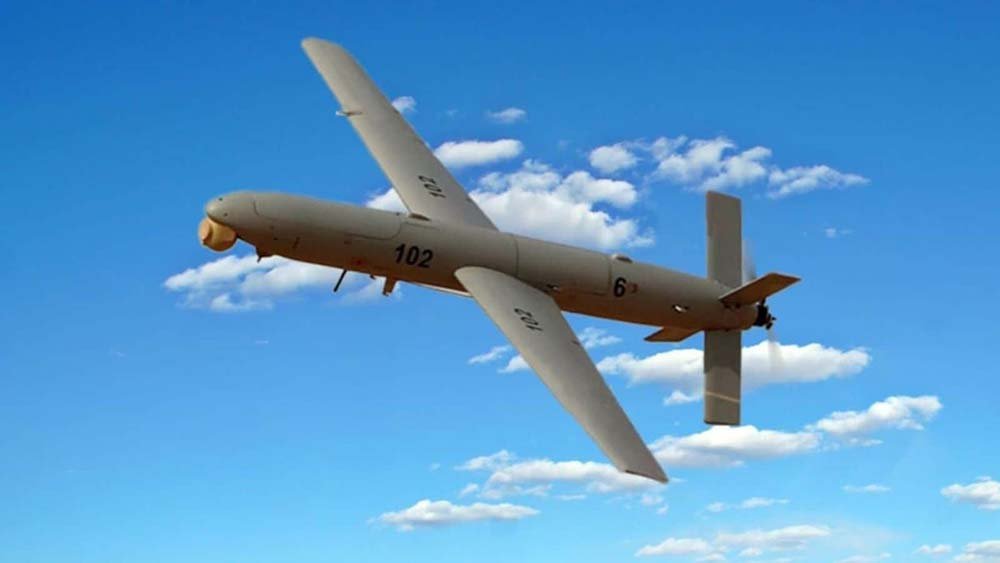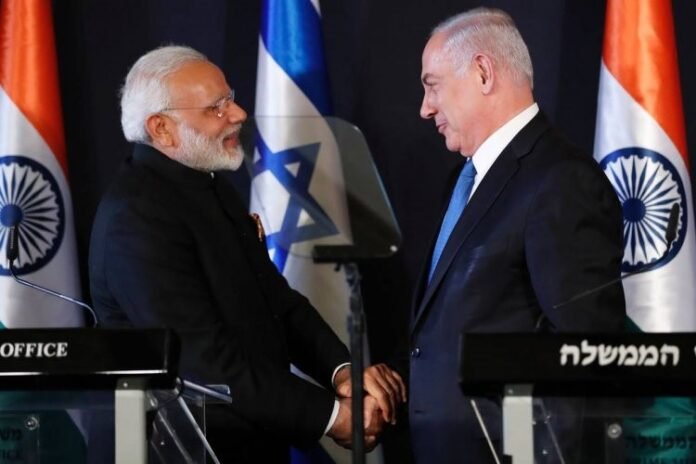India and Israel today share a deep, multi-dimensional strategic partnership encompassing defence, intelligence, trade, agriculture, innovation, and diplomacy. Yet, this partnership has not emerged overnight. It has evolved slowly, deliberately, and often quietly, influenced by India’s geopolitical calculations, domestic sensitivities, and the shifting security landscape of West Asia.
The Israeli Foreign Minister’s recent visit to New Delhi, amid heightened regional tensions, marks a critical juncture in reaffirming the continuity and depth of the relationship. To appreciate its significance, one must trace the trajectory of Indo–Israel ties — from tentative beginnings to the deep strategic alignment seen today — and assess how the two nations are shaping a new template for cooperation in defence, technology, and diplomacy.
Defence cooperation has consistently served as the cornerstone of this partnership. Over the years, it has expanded from equipment transfers and intelligence sharing to joint research, co-development, and co-production of next-generation military systems. Israel’s agility, technological innovation, and operational experience have made it one of India’s most reliable strategic partners.
Historical Trajectory of Bilateral Relations
Early Hesitation and Gradual Engagement (1948–1992): Although India recognised Israel in 1950, it refrained from establishing full diplomatic relations for over four decades. Several interlinked factors explain this cautious approach.
First, India’s Non-Aligned Movement (NAM) orientation placed emphasis on supporting Arab nations during their post-colonial transition and safeguarding access to critical energy supplies. Second, domestic political considerations — particularly sensitivities surrounding India’s large Muslim population — encouraged a restrained stance on overt engagement. Third, Cold War alignments divided India and Israel into opposite blocs: India was close to the Soviet Union, while Israel maintained strong ties with the United States.
Despite this diplomatic distance, back-channel contacts and covert assistance developed gradually. Following the 1962 Sino-Indian War, Israel provided limited defence assistance, and during the 1971 India–Pakistan conflict, it supplied artillery ammunition and equipment to India — marking the beginning of a quiet strategic convergence that would later deepen.
Normalisation and Expansion (1992–2014): The end of the Cold War, India’s economic liberalisation, and the collapse of the bipolar world order created an opportunity for a strategic reset. In 1992, India formally established diplomatic relations with Israel, opening embassies and beginning structured bilateral cooperation.
This period witnessed the expansion of agricultural technology exchanges, water management projects, intelligence cooperation on counterterrorism, and defence trade. Israel emerged as a reliable supplier of advanced military hardware, including unmanned aerial vehicles (UAVs), radars, missiles, and electronic warfare systems.
The 1999 Kargil conflict was a turning point. Israel’s unmanned systems and precision-guided munitions were used effectively by the Indian Air Force to neutralise entrenched positions. The performance of these systems underlined Israel’s reputation as a dependable and responsive partner, willing to deliver under urgent operational conditions — something that would define the relationship in years to come.
Strategic Partnership Era (2014–Present): Since 2014, the India–Israel partnership has entered a new, strategic phase marked by political visibility, institutional cooperation, and technological integration. The historic visit of Prime Minister Narendra Modi to Israel in 2017 — the first ever by an Indian Prime Minister — signalled the maturing of the relationship into a formal strategic partnership. The subsequent visit by Prime Minister Benjamin Netanyahu to India in 2018 further consolidated this framework.
Despite international criticism of Israeli military actions, India has sustained its engagement with Israel — balancing principle with pragmatism and reaffirming that strategic cooperation remains insulated from political flux
Bilateral cooperation now extends beyond defence into cyber security, artificial intelligence (AI), quantum computing, outer space, and smart agriculture. The two nations have synchronised their counterterrorism doctrines, regularly conduct joint exercises, and maintain intelligence coordination mechanisms. Israel’s success in high-technology entrepreneurship aligns well with India’s Atmanirbhar Bharat vision for self-reliance and innovation-driven defence manufacturing.
Strategic Dimensions of Bilateral Cooperation
Defence Cooperation: Israel is today one of India’s top three defence suppliers, alongside Russia and France. Key acquisitions and joint developments include the Barak-8 (LRSAM/MRSAM) missile systems co-designed with DRDO, Phalcon AWACS mounted on IL-76 aircraft, Heron and Searcher UAVs, Spike anti-tank guided missiles, and electronic warfare suites.

Beyond procurement, India and Israel have embarked on joint R&D programmes focusing on combat drones, precision loitering munitions, radar systems, and integrated air-defence technologies. The hallmark of this cooperation lies in Israel’s flexibility and rapid response, often customising systems for India’s unique operational environment — from desert warfare to high-altitude conditions.
Intelligence and Counterterrorism: Both countries are targets of cross-border terrorism and share an uncompromising stance against extremism. Intelligence-sharing between India’s Research and Analysis Wing (R&AW) and Israel’s Mossad deepened after the 2008 Mumbai terror attacks, resulting in improved real-time data exchange and joint threat assessments.
Cooperation now extends to cyber defence, homeland security, and counter-drone operations. Indian police and paramilitary forces regularly undergo training with Israeli agencies in urban warfare, intelligence analysis, and crowd control technologies. The establishment of joint working groups on homeland security and cyber resilience has institutionalised this cooperation.
Economic and High-Technology Trade: Bilateral trade has grown from US$200 million in 1992 to nearly US$10 billion today, excluding defence. This trade covers defence electronics, water desalination systems, irrigation technology, green energy solutions, semiconductors, pharmaceuticals, and precision agriculture.
Israel’s expertise in water recycling and drip irrigation has found fertile ground in India. More than 30 Centres of Excellence for Agriculture, jointly managed by Israeli experts, operate across Indian states, significantly enhancing crop yields and water-use efficiency. Cooperation in solar energy, medical technology, and AI-driven innovation has made Israel an important technological ally in India’s modernisation journey.
Cultural and Diaspora Links: The Indian Jewish community, concentrated in Mumbai, Cochin, and Kolkata, has historically served as a living bridge between the two civilisations. Post-independence, many Indian Jews migrated to Israel, yet their cultural imprint remains strong in India’s social fabric. Similarly, Indian caregivers, professionals, and students in Israel have strengthened people-to-people contact and contributed to a warmer, humanised relationship.
Geopolitical Considerations
India’s West Asia Balancing Act: India has long maintained a delicate diplomatic balance in West Asia, cultivating robust relations with Israel, Iran, Saudi Arabia, and the UAE. This strategy safeguards energy supplies, protects the interests of over eight million Indian workers in Gulf States, and supports trade and connectivity projects like the India–Middle East–Europe Economic Corridor (IMEC).
While India continues to advocate a two-state solution to the Israeli–Palestinian conflict, it has succeeded in compartmentalising its political and strategic engagements — maintaining moral consistency while ensuring pragmatic cooperation with Israel.
Israel’s Strategic Interest in India: For Israel, India is a stable, democratic, and fast-growing defence market, and an ideal partner for joint research and innovation. India’s rising influence in the Indo-Pacific region positions it as a bridge linking West Asian geopolitics with Asian strategic dynamics. Israel also views India as a counterweight to Pakistan’s Islamist alignments and an anchor for balancing China’s growing footprint in the Indian Ocean.
Israel’s Contribution to Operation Sindoor: During Operation Sindoor, Israeli-origin and jointly developed Indo–Israeli systems played a pivotal role across multiple dimensions of India’s air and missile defence architecture.
The Barak-8 missile system, co-developed by DRDO and Israel Aerospace Industries, was employed as part of India’s integrated air-defence grid, successfully intercepting aerial threats. Israeli Prime Minister Netanyahu later acknowledged publicly: “The things we provided worked very well on the field — our weapons are battle-tested.”
Similarly, loitering munitions such as the HARPY and Sky Striker drones, co-produced through Indian partnerships with Israeli firms, were used for precision strikes on enemy radar, missile, and communication sites.
In the intelligence domain, Israeli radar systems, EW suites, and UAVs formed an integral part of India’s multi-layered Anti-Access/Area-Denial (A2/AD) network, enhancing surveillance and situational awareness.
Beyond military hardware, Israel provided strong diplomatic and political support, publicly backing India’s right to self-defence — reinforcing that the Indo–Israel partnership transcends transactional defence cooperation.
The Rampage air-to-ground missile, an Israeli-designed, long-range, high-speed precision weapon, has reportedly been inducted into Indian forces post-operation, highlighting how combat performance drives continued procurement.
Overall, Israel’s contribution was comprehensive, spanning hardware supply, co-development, ISR integration, and diplomatic solidarity — underscoring the trust and strategic alignment between the two nations.
The Indo–Israel partnership has moved from discreet defence exchanges to full-spectrum collaboration across technology, innovation, and security — marking Israel as one of India’s most enduring and forward-looking allies
Implications of the Israeli Foreign Minister’s Visit
The Israeli Foreign Minister’s visit to India must be understood in the context of the Gaza conflict, tensions in the Gulf, and India’s expanding regional diplomacy. It carried several strategic implications.
Reassurance of Continuity in Strategic Ties: Despite global criticism of Israeli actions, India has adopted a balanced and principled position, condemning civilian casualties while sustaining high-level engagement. The visit reaffirmed that defence, intelligence, and technological cooperation remain insulated from political pressures.
Deepening Defence-Industrial Co-development: Discussions centred on expanding the MRSAM programme to other service branches and co-developing swarm drones, loitering munitions, and AI-enabled battlefield systems. This aligns with India’s Defence Production & Export Promotion Policy (DPEPP) and the broader Atmanirbhar Bharat vision.
Advancements in Water, Energy, and Agriculture: Israel’s role in river rejuvenation, desalination, and climate-resilient agriculture is expected to expand. Joint work in solar-hydrogen energy ecosystems complements India’s green growth agenda and climate adaptation efforts.

Consolidating India’s West Asia Diplomacy: The visit reinforced India’s position as a bridge between Israel and the GCC states, advancing economic groupings such as I2U2 (India–Israel–UAE–US) and connectivity projects like IMEC, which link West Asia with the Indo-Pacific.
Counterterrorism Cooperation: Shared security concerns about radicalisation networks, cross-border terrorism, and Iran-backed proxies featured prominently, paving the way for enhanced intelligence and operational cooperation.
Challenges and Constraints
While the relationship is on an upward trajectory, it faces challenges. India must continue to balance ties with Arab nations, manage domestic sensitivities over Palestine, and respond to human rights scrutiny that both countries encounter internationally. Moreover, regional instability could impact India’s diaspora and energy interests.
However, India and Israel have demonstrated a unique ability to compartmentalise differences and maintain forward momentum, focusing on areas of clear strategic convergence.
Takeaways
Indo–Israel relations have matured into a strategic partnership based on trust, technological synergy, and shared security interests. The Israeli Foreign Minister’s visit to India symbolises continuity, confidence, and collaboration in an increasingly complex geopolitical landscape.
The partnership is now shifting from arms acquisition to joint innovation, covering AI, cyber security, homeland defence, agriculture, water management, and renewable energy. It will continue to be shaped not only by bilateral needs but also by India’s engagement in the Gulf, the Indo-Pacific, and the evolving balance of global power.
Ultimately, the Indo–Israel relationship has become too strategic, too interdependent, and too forward-looking to reverse — cementing Israel’s place as one of India’s most steadfast partners in the 21st century.
-The author retired as Major General, Army Ordnance Corps, Central Command, after 37 years of service. A management doctorate and expert on defence modernisation, he is the author of four books, including the Amazon bestseller “Breaking the Chinese Myth,” and a frequent media commentator. He is affiliated with several leading defence and strategic studies institutions in New Delhi. The views expressed are of the writer and do not necessarily reflect the views of Raksha Anirveda






